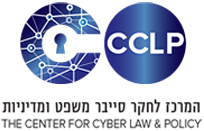PI: Sofia Sherman, Irit Hadar, Gil Luria
Abstract:
Context: Industry-academia collaboration (IAC) in the field of software engineering is widely discussed in the literature, highlighting its importance and benefits. However, along with the benefits, academic researchers face challenges while performing empirical studies in industry, risking their success. Awareness of these challenges and the importance of addressing them has recently grown, and became the center of discussion in several publication venues. Objective: In this paper, we aim to address one of the key challenges affecting the success of IAC: stakeholder involvement. To this end, we propose a vision for leveraging organizational climate theory toward an effective management of IAC in software engineering research. Organizational climate is defined as the organization's priorities as perceived by its employees and was found to be an effective means of predicting employee behavior Method: To provide a basis and motivation for our vision, we conducted a literature review, focused on the workshop series of CESI, Conducting Empirical Studies in Industry, in order to elicit the relevant reported challenges of IAC, and to analyze them through the lens of the organizational climate theory. Results: Emergent categories of the elicited challenges of IAC are related to the two basic components that determine the emergence of organizational climate: management commitment and communication. This result demonstrates that analyzing stakeholder involvement-related challenges of IAC through the lens of organizational climate theory provides an indication of the climate components that should be enhanced in order to address these challenges. Conclusion: The above analysis lays the foundation for our vision that organizational climate may serve as an effective means of addressing the discussed challenges. We propose that developing measures of organizational research collaboration climate and deploying respective interventions for improvement would be instrumental for enhancing stakeholder involvement in IAC. We further propose a research outline toward fulfilling these potential contributions.
Read More in the PDF FIle.
© 2018 THE CENTER FOR CYBER LAW & POLICY. All rights reserved.





